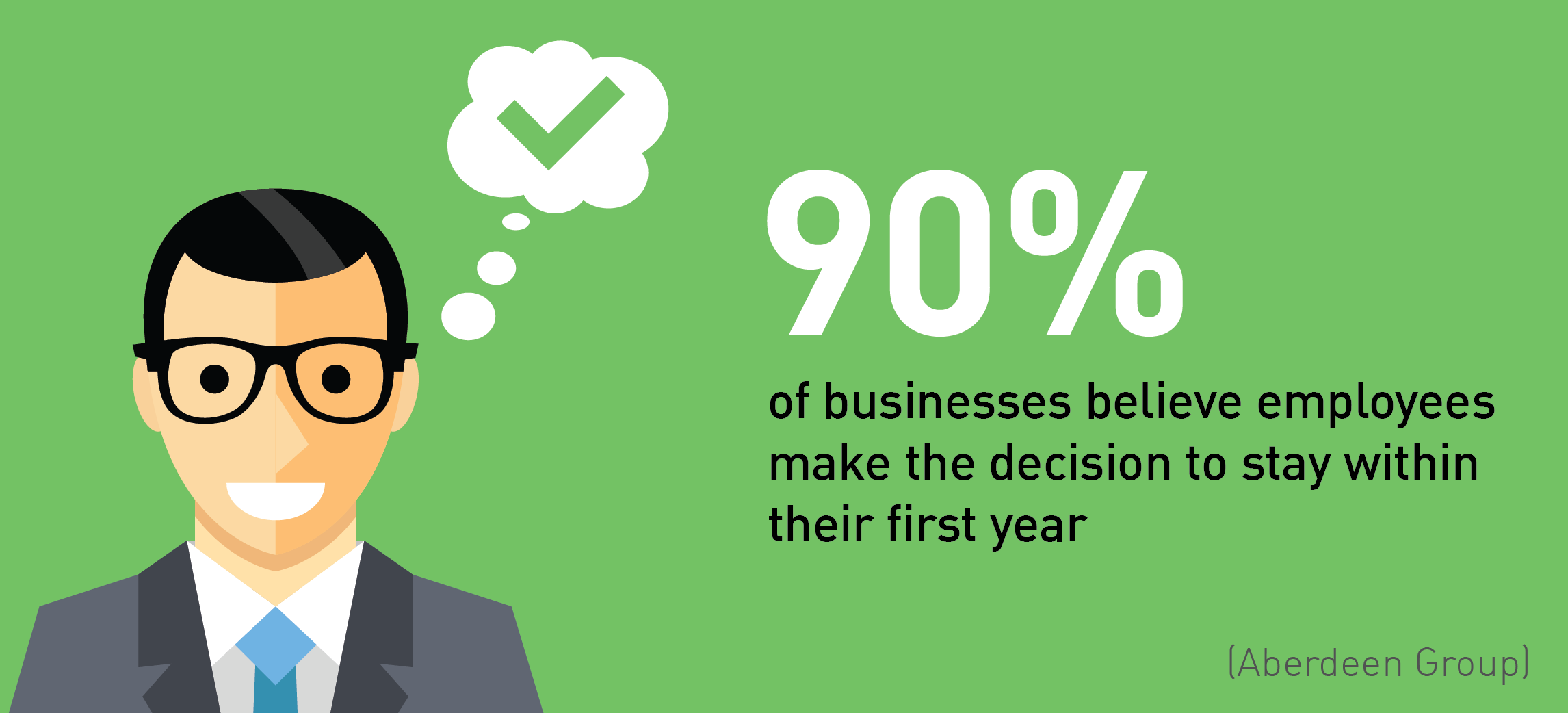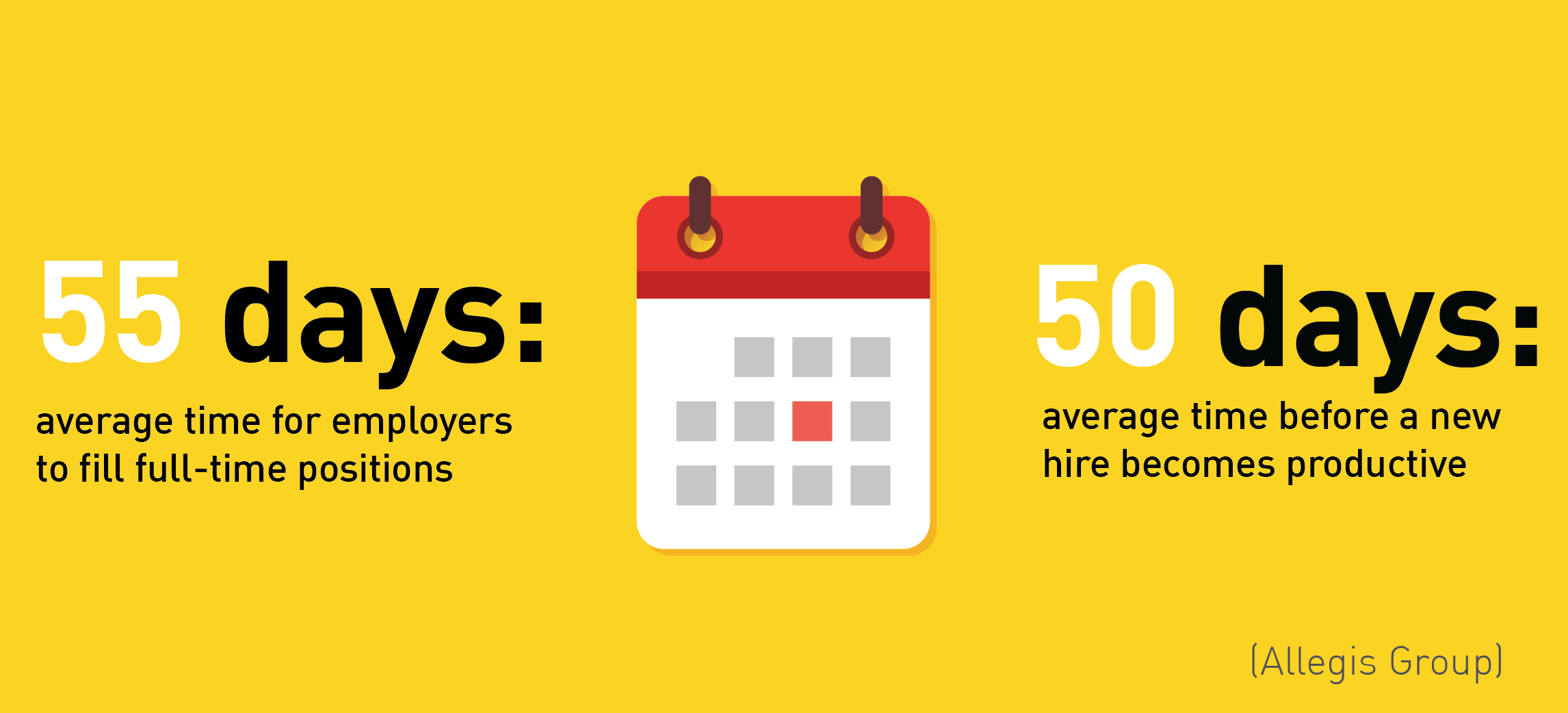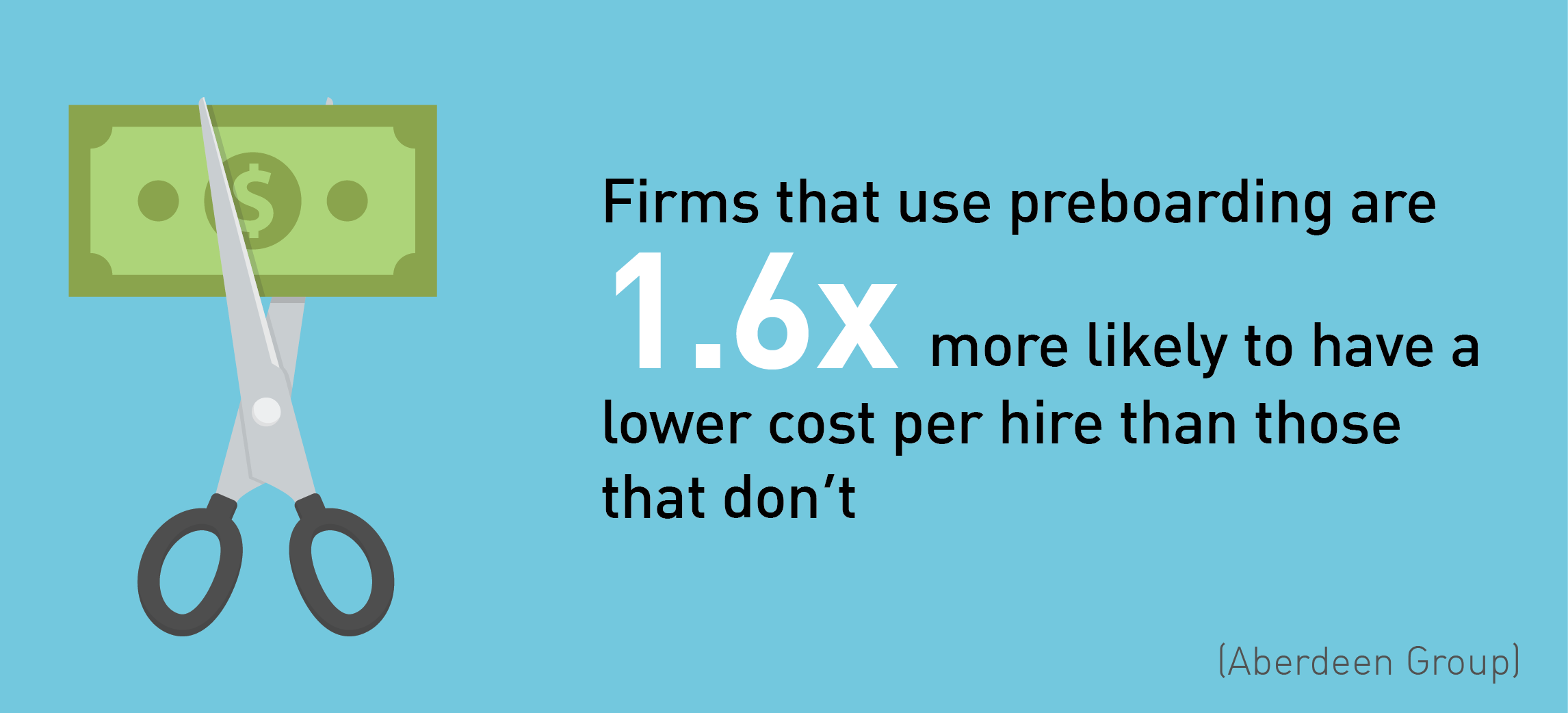Onboarding best practices
Part 2: Pre-onboarding engages new hires before Day 1
August 8, 2016 | By Leslie Deutsch

Would it surprise you to learn many of your new hires question whether they made the right choice even before starting a new job? High-performing organizations know prospective employees are forming opinions of their new company long before their first day. Throughout the selection and hiring stage, employees glimpse the inner workings of the organization—including HR processes, organizational transparency and interdepartmental communication.

A strong pre-onboarding (or preboarding) process engages new hires during the uncertain phase from offer acceptance until their first day on the job. It also reduces operational overhead by automating administrative and logistical tasks. Most importantly, it provides opportunities for the new hire to feel welcomed and valued, and to begin ramping up for Day 1.
Get everyone involved in pre-onboarding activities
One of the biggest complaints we hear is that hiring managers find it challenging to keep on top of the tasks and handoffs needed to enroll a new hire into important programs and tools. Employees can spend days or even weeks sitting at their desk while waiting for their workstation or access to essential systems and tools, which impacts morale and productivity.

We’ve found that a few critical operational improvements can make a huge difference to ensure Day 1 readiness. These include (but definitely aren’t limited to):
- Forms and task management processes that are standardized and automated
- Centralized status/information sharing across multiple functional areas, e.g., access to an employee onboarding tracker
- Automated provisioning tools for granting user accounts and access
Organizations that set targets for achieving Day 1 readiness create the accountability and urgency across all stakeholders, and typically achieve better outcomes than those that take a more informal approach.
Make preboarding personal
Relationship-building and peer networking are deeply important to each of us, so a powerful first step is to connect with your new hire right away. Team socialization doesn’t need to be formal to be effective.
Here are a few things you can do to add your own personal touches:
- Is the new hire moving to the area? If so, ask HR if they can recommend local realtors or ask if anyone on the team is willing to act as a local ambassador.
- If corporate overviews or other materials are publicly available, share them with the new hire so that they can read in advance. This reduces the sense of information overload in those first few days!
- Prepare a welcome packet with helpful information about Day 1, such as where to park or which train to take, how to find the cafeteria or coffee shop, and who will greet them when they arrive.
- Introduce the new hire’s mentor and provide contact information in case the new hire has questions.
- Don’t forget to meet and greet your remote workers on Day 1. The hiring manager should set up a call in advance on an employee’s first day.

Preboarding has many benefits: It will make a new hire feel welcomed and like a part of your organization before they walk in the door. It validates their decision to accept the job, and gets them excited to hit the ground running. In my next blog, I’ll talk about the third phase: orientation and the pitfalls of confusing orientation with onboarding.
Your talent can achieve peak performance
We can help.
